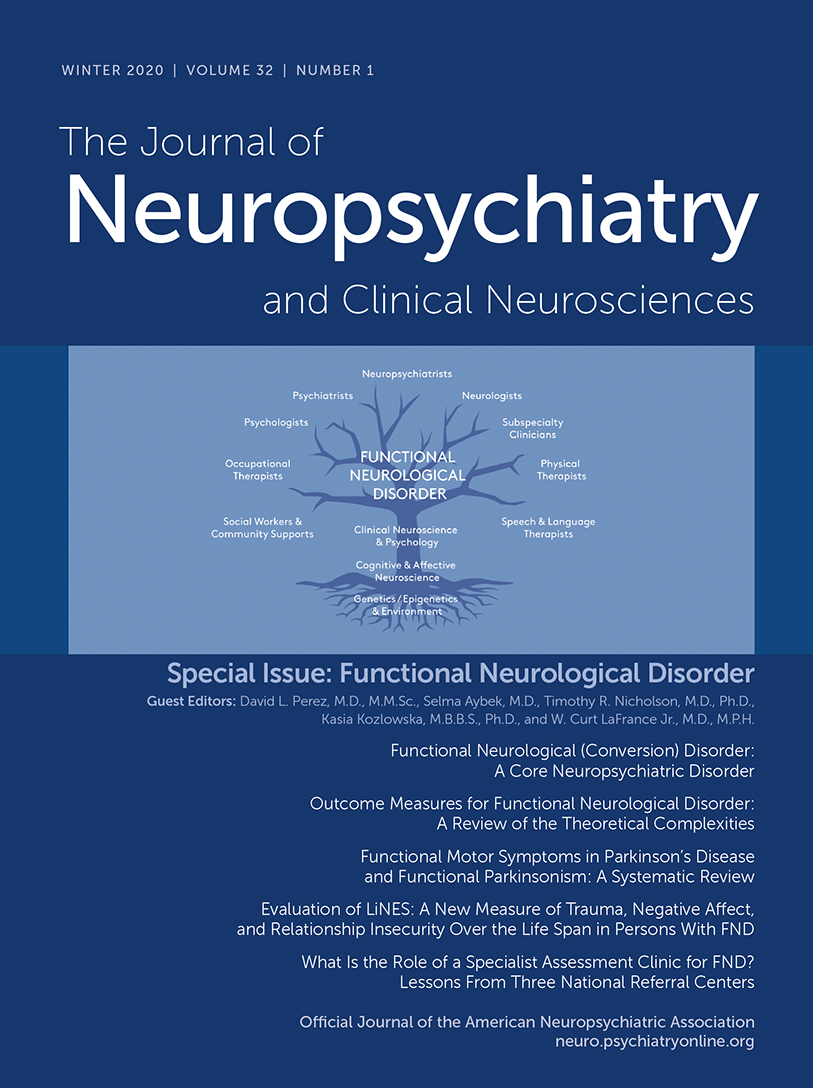Evaluation of LiNES: A New Measure of Trauma, Negative Affect, and Relationship Insecurity Over the Life Span in Persons With FND
Abstract
Objective:
The authors evaluated potential predisposing vulnerabilities and perpetuating factors among individuals with functional neurological disorder (FND) by using the novel Lifespan Negative Experiences Scale (LiNES), which assesses retrospective self-report of interpersonal trauma, negative affect, and relationship insecurity at three developmental stages: childhood, adolescence, and adulthood.
Methods:
The LiNES, Childhood Abuse and Trauma Scale (CATS), Relationship Scales Questionnaire (RSQ), and Positive and Negative Affect Schedule (PANAS) were administered to 71 individuals with FND. The reliability and validity of LiNES were examined by correlation with the other measures. FND patients’ responses on LiNES were compared with those of 170 healthy control subjects.
Results:
LiNES scores in the FND group were internally consistent and correlated highly with CATS, RSQ, and PANAS scores. At each developmental stage, LiNES trauma scores were higher among patients with FND, compared with control subjects. The FND subgroup, which comprised patients who also had nonepileptic attack disorder, had higher trauma scores, compared with the FND-only subgroup. Compared with control subjects, patients with FND reported greater negative affect and relationship insecurity in adulthood. Lifetime LiNES scores for interpersonal trauma and relationship insecurity predicted FND group classification with >80% accuracy.
Conclusions:
This study provides further support for the links between FND and trauma, negative affect, and insecure attachment. Recognition of these factors is likely to be important for treatment and stratification of important subpopulations in research. These findings provide new insights into the association between the timing of negative experiences and their effect, with LiNES emerging as a potentially useful measure for patients presenting with FND.



